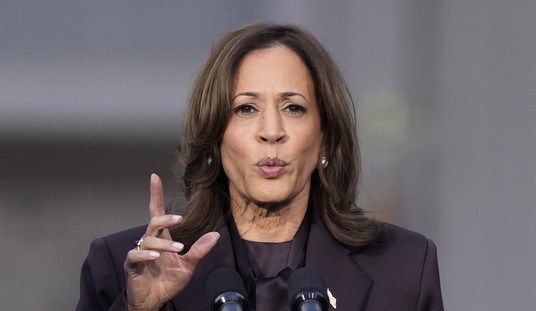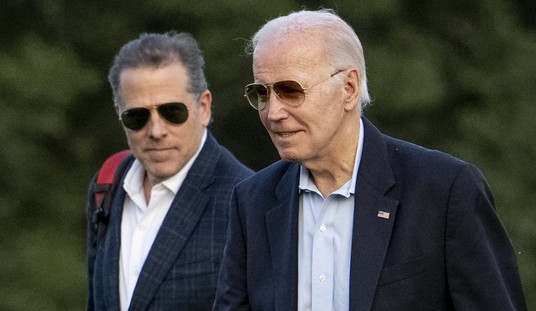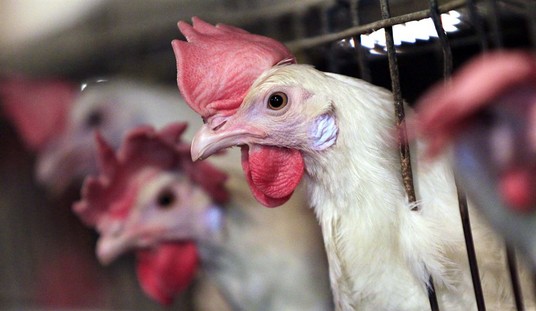The horror of recent mass shootings has afforded progressives yet another opportunity to cynically politicize tragedy, putting our individual rights squarely in their crosshairs. The refrain is familiar enough: These horrors could have been prevented but for the benighted politics of gun-crazy rednecks and the National Rifle Association, which is resolved to stop any reasonable, bipartisan reform before it starts. The chorus of calls for an “assault weapons” ban, for example, have begun anew, encouraged by the latest string of tragic events that seems to demand political action. Never mind that “assault weapon” is an intentionally confusing non-concept. As David B. Kopel observes, “The term is an arbitrarily defined epithet,” designed to scare otherwise reasonable people into supporting an utterly asinine policy.
Proponents of gun control have always struggled mightily with the concept of causality—with accepting that the authoritarian measures they favor won’t accomplish their stated goals. And so an important observation must be noted at the outset: It’s an unavoidable fact gun-control measures are not exactly what they purport to be. Their proponents believe (quite honestly, we must grant) that these laws make it more difficult for Americans to obtain guns, but they make it more difficult only for some Americans, groups apparently disfavored by the progressive elite, which happen not to be the most dangerous groups.
Understanding why the progressive left has such an obsessive commitment to eliminating individual rights requires us to survey the roots of progressive thought. As a general matter, early progressives denied the existence of fundamental individual rights, preferring the notion that the administrative state, stewarded by properly credentialed experts, ought to decide policy questions not according to supposedly mystical theories of natural rights—redolent of a less scientific age—but with empirical facts.
The rights of man, sacred, inviolable, and pre-existing all human governments, were among the centerpieces of the liberal idea. But in progressivism, the rights of citizens were to be determined by the contours of positive law, which in turn was to be administered by qualified experts. Legal positivism thus necessarily accompanies progressivism. Rights are merely grants of special privilege, which can be rescinded by the state, their originator, without notice or due process. Neither side of the gun-control debate can hope to fully understand it without appreciating the implications of this fundamental dichotomy. This choice between progressivism and liberalism (in the classical sense) furthermore implies still another split on the question of whence society derives order in general: hierarchically, handed down from our supposed betters in government, or spontaneously, from the natural, evolving interrelations of free people. Perhaps more than is generally assumed, these questions bear on gun policy and surrounding issues.
Suppose we assume, arguendo, that we should take steps to lessen gun violence through reasonable gun-control measures. Even if we accept this premise, it remains unclear whether government (the national government, in particular) must be or should be the institution to undertake such measures. We still have to figure out whether involving government makes sense. In his short book Political Philosophy: An Introduction, Georgetown philosopher Jason Brennan explains the problem as “the Fallacy of Direct Governmentalism,” which is “the mistake of presuming that if something is valuable, then it (1) ought to be promoted by government and (2) ought to be promoted by government in a direct manner.” Brennan argues—and libertarian proponents of public choice theory generally agree—that too many political philosophers “just imagine that institutions always accomplish their intended ends,” ignoring the “empirical, social-scientific question” of whether this is actually true in the real world. This mistake allows progressive gun-control advocates to complacently waive away concerns that they would ordinarily take very seriously, concerns about monopoly power, inequality of rights, and the disparate impact of their favored policies on certain racial or ethnic groups.
It is this taking for granted that the state, once entrusted with such an awesome power, will simply use it for good and solve the problem that is itself progressives’ most controversial move: the very idea libertarians (and political decentralists generally) question. If we stipulated with progressives the state just is possessed of the knowledge, resources, and incentives to solve the problem, then of course we would agree that it should. This is the claim for which there seems to be a glaringly inadequate account; why do progressives hastily assume the concentrated power of government—which, we must remind them, is itself made up of individuals—is not just as dangerous and self-interested? If we assume real-world people with real-world flaws, then it seems much less reasonable to let powerful monopolists in government strip us of our natural, individual right to self-defense. History attests these public choice worries. Having disarmed their subjects, actual governments have brutalized their citizens and murdered tens of millions.
It is bad practice to simply assume institutions are going to work the way we want or intend them to without, as Brennan urges, “check[ing] to make sure.” Public choice theory teaches us not to accept these easy answers but rather to question why government—a monopoly with the exclusive power to demand obedience—would act responsibly and peaceably having disarmed the citizenry. If we take incentives seriously, if we reject the absurd assumption people become angels once they move from the private into the public sector, then we shouldn’t be so ready to allow government to take away our individual rights. And if owning a gun isn’t an individual right, then how does government, again merely an aggregation of distinct individuals, account for its many guns? What about its tanks, missiles, and nuclear warheads? How is this special treatment justified?
In their earnest belief in grade-school rhetoric about “good government,” progressives become over-credulous, susceptible to the absurd idea the federal leviathan is actually the instrument of the People. That the People is not something that exists outside of or apart from its component parts is apparently difficult for progressives to grasp, in large part because they are convinced beyond any doubt government is a quasi-charity staffed by bleeding hearts and do-gooders. Even a slight acquaintance with history would have taught progressives government is anything but the benevolent guardian or servant of the People, that it is brute force—force draped in finery and thoroughly euphemized through propaganda, but force nonetheless. In Common Sense, Thomas Paine accurately describes the first governments:
This is supposing the present race of kings in the world to have had an honorable origin; whereas it is more than probably, that could we take off the dark covering of antiquity, and trace them to their first rise, that we should find the first of them nothing better than the principal ruffian of some restless gang, whose savage manner or preeminence in subtlety obtained him the title of chief among plunderers; and who by increasing in power, and extending his depredations, overawed the quiet and defenseless to purchase their safety by frequent contributions.
It is no small irony everything government does, it does by making threats and pointing guns, the selfsame guns for which progressives have such a deep and irrational hatred. It is remarkable that the rights of actual people should be so thoroughly scorned by their ideology. It might have been assumed a social theory purporting sensitivity to the interests of the people would aim to protect the rights of those people.
Progressives thoughtlessly alternate between two mutually exclusive pictures of government—one in which government, elected officials, and bureaucrats are essentially bought and paid for—puppets dancing on strings held by powerful corporate interests—and one in which government is just “the things we choose to do together,” the embodiment of the democratic spirit and the great public counterbalance to the influence of rich private interests. Which of these narratives is closer to the truth is a question that matters as much for the gun-control issue as for other policy debates.
The first narrative, even if oversimplified, takes seriously the arguments posited by public choice theory; it suggests that incentives matter no less for government actors than they do for anyone else and that we shouldn’t just assume away the obvious engineering flaws in the progressive blueprint. If, as this first narrative contends, public officials are not as high-minded or altruistic as we’d like to think, then we have to craft our theory of the good polity around that observation. And our specific policies, including gun policy, should assume people who work in government bodies are just like all other people: We can’t waive a magic wand and obliterate their self-interest, private motivations, or incentives to abuse power. Granted, if we could, matters would be far simpler, but our political theory wouldn’t have much of an application to the world in which we actually live.
However anyone feels about it, the country is awash in guns and ammunition, a fact that is not going to change regardless of the passage of new laws. Indeed, the Congressional Research Service tells us that there are over 300 million firearms in the United States, which means there are probably more guns than people in the country. In much of the country, firearms remain readily accessible both on the black market and through perfectly legal sales, including private sales. The clear implication is, as Kopel notes, “that gun laws often cannot stop a person bent on murder.” We can anticipate the rejoinder of the gun control advocate: “But does that mean we shouldn’t try?” The answer to that question depends on a careful analysis of the costs and benefits of trying, so it therefore depends on what is meant by trying. Given that the preferred policies of gun-control activists seem to be ill-suited to the task of accomplishing the stated safety objectives, the benefits side of balance is deficient, and the costs are high.
Policymakers should avoid impinging on the rights of peaceful, law-abiding Americans, not only because many of the proposed restrictions are of questionable constitutionality, but because they would make society less safe. As Kopel notes, “Firearms in the hands of law-abiding citizens enhance public safety.” If one is a gang-banger or a would-be murderer determined to attack a school or other public place, the most common gun control proposals are extremely unlikely to deter him—even if we assume that they apply to him in the first place. And Kopel’s study demonstrates we shouldn’t assume that this is the case. Even very stringent background checks would not have prevented some of most high-profile shootings of 2015. For example, the case of Christopher Harper-Mercer, who murdered nine people at a community college in Oregon and whose guns were all purchased legally—despite his mental health issues.
Gun-control activists ought to care about whether their anti-gun policies actually work, a question of empirical fact. For as law professor Ilya Somin said recently in a talk on political ignorance, “Many things that look like disagreements over values are in fact disagreements over facts.” After all, most sane people on both sides of the political divide sincerely want a safer United States with fewer gun deaths. Champions of gun control thus find themselves faced with a public choice conundrum: They want to forcibly disarm many law-abiding Americans using arbitrary and failed standards while leaving the most dangerous types of weapons in the control of government. What’s more, their favorite policies are likely to put American lives at risk rather than preventing mass shootings. Sure, it’s easier to simply build in the assumption that government and its agents are our good-hearted protectors per se, but everything we know about incentives and the logic of human action suggests that just the opposite is true—that government power is itself the most immediate threat to American lives and liberties.
As the great scholar Robert Higgs has noted, “The burden of proof clearly should rest on those who place their trust in the state,” whose “mayhem is undeniably, factually horrendous” as opposed to “wholly conjectural.” The gun-control agenda suffers from a severe dearth of supporting facts and evidence; if its surrogates have figured this out, then they have also cultivated a talent for turning tragedy into political propaganda. To preserve a free society, we must accept that government is not omnipotent, capable of solving a complex problem just by passing a new law.
David S. D’Amato ([email protected]) is an attorney, adjunct law professor at DePaul University in Chicago, and a policy advisor at The Heartland Institute, a free-market think tank headquartered in Arlington Heights, Illinois.













Join the conversation as a VIP Member